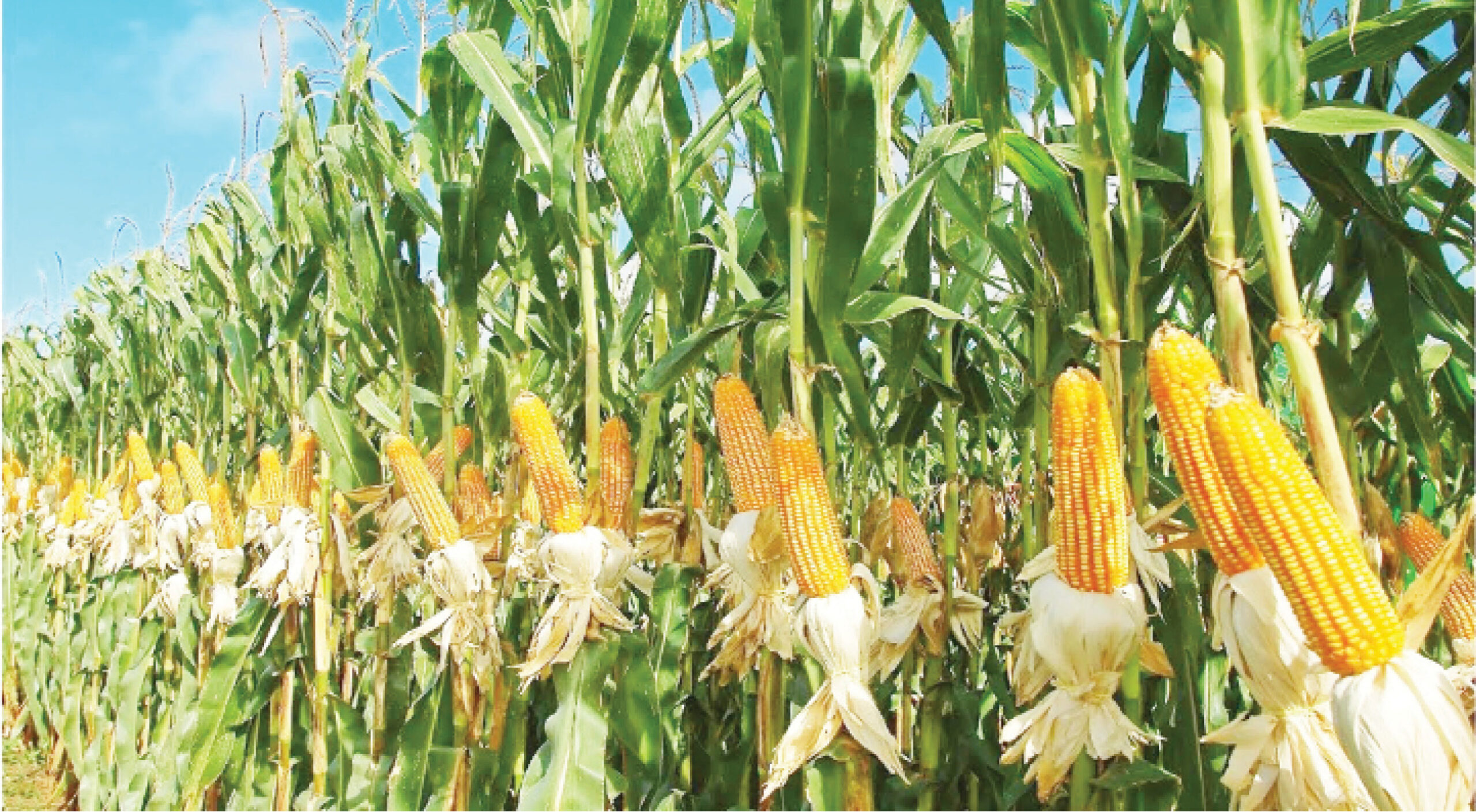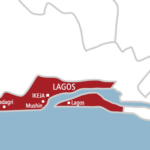Despite the commencement of the harvest of food items in many parts of the country, prices of the commodities keep rising in major grain markets and cities across the country.
This, consumers said is taking a toll on their welfare amid palpable hunger and low income aggravated by inflation.
- Ronaldo leapfrogs Messi in list of top-earning players
- Video depicting Nigerian military onslaught on terrorists in Zamfara false
Daily Trust reports that the National Bureau of Statistics (NBS) recently said that inflation was generally going down in Nigeria but many citizens said they were yet to see any reduction in the cost of living.
Investigation showed that harvest of produce like maize, millet, melon, yam, sweet potato and rice has commenced in many parts of the country but this has failed to bring down the prices of the items as was usually the case in the past.
Observers believed that the ongoing harvest in many parts of the regions was expected to bring down the prices of the commodities but the opposite is the case.
Reports from major grain markets in the country indicated that merchants were already flooding the markets to mop up available produce; situation watchers said was responsible for the current price hike.
Daily Trust on Thursday visited the Dawanau International Grain Market in Kano, where merchants were seen mopping up the grains.
Our correspondent in the state reports that at the commencement of the harvest a few weeks ago, farmers flooded the market with new grains, especially maize.
Some traders said the speculators were either mopping up the grains for storage or export to neighbouring countries.
A grain merchant at the market, Alhaji Wada Balange, told Daily Trust that at the commencement of the harvest, there was a drop in commodity prices but was short-lived because of a mad rush for the grain in the market, hence the rise in the prices.
Similarly, one of the merchants, who pleaded anonymity, told our reporter that most of them were fronting for multi-national agro companies, adding that there was a “silent ongoing competition between these agro companies and as such a huge demand for the commodity has been created.”
He said, “It is unfortunate that a huge demand has been created by these multi-national companies without any consideration to the plight of the common man. To be candid, we are all fronting for these companies, but it isn’t what we wanted to see.
“Farmers have done what they were supposed to do, but this is Nigeria, these companies are taking these harvested produce to either store them or export them,” he said.
Due to this development, it was gathered that prices of the commodities in the market had gone up as 100kg bag of new maize was sold for between N20, 000 and N22, 000 as against between N19,000 and N20,000 last year.
Similarly, a 100kg bag of beans was sold for N43, 000 yesterday as against N34, 000 same time last year and a 100kg bag of rice was sold for N57, 000 as against N48,000 last year.
A father of four children and a resident of Tsamiya village, Malam Hamza Tsamiya, attributed the current rise in prices of food commodities to the aftermath of COVID-19 lockdown.
“During the lockdown, agro-dealers found out that they can make a fortune by hoarding commodities and ever since then, we have not been experiencing the relief we hitherto enjoyed during the harvest period.”
In Benue, no reduction in prices
Reports from Benue State also indicated that prices of food commodities were yet to reduce despite the advent of the harvest season with new products flooding the markets.
Our correspondent who visited the Wadata Market in Makurdi, gathered from some traders that insecurity in most of the food-producing areas of the state and activities of middlemen were largely responsible for the situation.
A trader, Mbafan Moses, said farmers were already bringing their first set of harvests to the market, which should ordinarily force down prices of other competitive food items, but the products were not sufficient enough to meet the demands of buyers.
“In the past, we buy produce at reduced prices from farmers directly at this period but it is no longer so…
“The food items are also not sufficient for buyers and because of insecurity in some areas, we can’t access local markets. So, we have to wait for those middlemen to bring it to us.
“We buy the produce at high cost from them because of hike in transportation.
“Some of them complained that the commodities were also not available in the market because most of the farmers have fled from their villages.”
Bob Tor, who trades in grains, narrated that the prices of maize, millet and guinea corn had not reduced from what they used to be sold as a result of insecurity in the huge food-producing areas of the state.
“The areas such as Guma, Ado, Agatu, Gwer West, Logo, Ukum and Kastina-Ala, notable for grains, yam and rice production are heavily bombarded by insecurity.
“Farmers from these areas are in IDPs camps. That is why prices of these food commodities are yet to come down in Benue,” he said.
Tina Nyiyongo, a consumer, said the effects of the high prices of food items on her meagre resources could only be imagined.
The Chairman of All Farmers Association of Nigeria (AFAN) in Benue State, Aondongu Saaku, said the major reason why the prices of food items were still high in markets was that some farmers were yet to start harvesting their produce and the insecurity bedevilling the state.
“Production this year was low because of insecurity and in some other places, those who have produced could not go there (farms) because the farms have been destroyed by enemies,” he said.
Lagos, Rivers hard hit
At the popular Agege Market in Lagos, a market survey conducted showed that the prices of foodstuffs were on the increase.
A trader, Mrs Juliet Chinedu, said, “In July, a ‘DeRica’ of rice was sold for N350 but now it is N450. It is the same for beans which a DeRica was N300 before. It is now sold for between N500 and N600, depending on the type of beans.
“We are not happy with the rise in the price of foodstuffs because our customers are unable to buy when they come to the market.”
Another trader, Mr Joseph Nnamdi, however, noticed a decline in the price of garri.
“As of last month, a paint of yellow garri was sold for N1, 200 while white garri was sold for N1, 000; but the price is coming down now as you can get white garri for N800 and the yellow one for N1,000. I want to appeal to the government to do more for the masses,” he said.
A consumer, Mrs Bankole Ayodele, said that people were not buying foodstuffs as much as they should because salaries had not increased but prices of foods keep going high daily.
A market survey carried out by our reporter in Rivers State showed that prices of foodstuffs were still on the increase despite the harvest season that had just begun.
A consumer in Mile One Market in Port Harcourt, Chikadibia Okwara, who spoke with our reporter said that the prices of foodstuffs had not changed despite the new harvest season.
“Nothing has changed in prices of foodstuffs since the new harvest season started. Many of us expected that since the new harvest has set in that the prices of foodstuffs will come down but that is not to be as everything is on the increase,” he said.
In Abuja, a 50kg bag of rice was on Thursday sold for between N25, 000 and N26, 000 depending on the brands and the market.
A 100kg of maize was sold for between N25, 000 and N26, 000 at Bwari Market, while sorghum was sold for N29, 000 and millet for N27, 000.
‘What government should do’
An agric economist, Mr Femi Adeogun, on Thursday, asked the government to check activities of middlemen in the agricultural production belt, who, he said, were partly responsible for the increase in prices across the country.
“Some of these men are doing it for some companies, which are into animal feeds and they are creating artificial scarcity in the market.
“Government should either regulate their activities or government should buy some of the produce and sell directly to the consumers through the national grain reserves,” he said.
He said the government should also find ways of increasing production outputs by linking farmers to farm inputs, finances and as well check insecurity, especially in the rural agrarian communities.
A retired agriculturist, Salisu Ibrahim, also advised the government to set up a special task force at strategic grain markets that will checkmate the activities of these middlemen.
He said although the scenario looked as if it was the farmers that were making the gains, “but it is the middlemen that are cashing in.”
A senior official of the Federal Ministry of Agriculture, who craved for anonymity, frowned at the activities of the middlemen in the agricultural chain, adding that for long, they had been the cause of the artificial scarcity of farm produce across the country.
He said the situation was worse now that most of these merchants stood for the multinational companies, who collected the produce for either production or outright export.
He said the government would soon take definite action against what he called unpatriotic activities.
By Hussein Yahaya (Abuja), Ibrahim M. Giginyu, (Kano) Hope A. Emmanuel (Makurdi), Victor Edozie (Port Harcourt), Adesoye Damilola & Mokwunye C. Esther (Lagos)

 Join Daily Trust WhatsApp Community For Quick Access To News and Happenings Around You.
Join Daily Trust WhatsApp Community For Quick Access To News and Happenings Around You.

